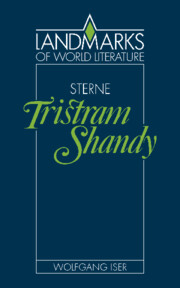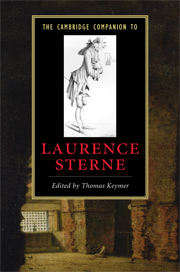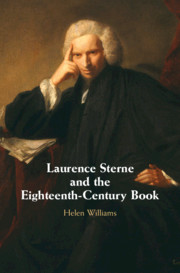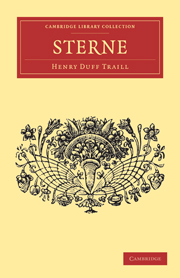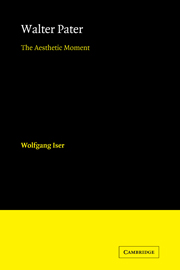Sterne: Tristram Shandy
£29.99
Part of Landmarks of World Literature
- Editor: Wolfgang Iser
- Translator: David Henry Wilson
- Date Published: April 1988
- availability: Available
- format: Paperback
- isbn: 9780521312639
£
29.99
Paperback
Other available formats:
eBook
Looking for an inspection copy?
This title is not currently available on inspection
-
Without a beginning and without an end, Tristram Shandy moves in many different directions, defying the conventional expectations of its readers. Wolfgang Iser shows how Sterne exploits the philosophy of his day and its cognitive deficiencies, using digression, humour and play to convey experience of subjectivity, and implicitly to expose the traditional concept of the self.
Customer reviews
Not yet reviewed
Be the first to review
Review was not posted due to profanity
×Product details
- Date Published: April 1988
- format: Paperback
- isbn: 9780521312639
- length: 156 pages
- dimensions: 203 x 132 x 16 mm
- weight: 0.25kg
- availability: Available
Table of Contents
Part I. Subjectivity revealed through textual fields of reference:
1. Does Tristram Shandy have a beginning?
2. Subjectivity discovered through Locke's philosophy
3. Locke's philosophy as a pattern of communication
4. Manic subjectivity
5. Melancholic subjectivity
6. Decentred subjectivity
7. Wit and judgment
8. The discovery of communication by verbalising subjectivity
9. The body semiotics of subjectivity as discovery of man's natural morality
10. Eighteenth-century anthropology
Part II. Writing strategies:
11. The first-person narrator
12. Interruption
13. Digression
14.Equivocation
Part III. The Play of the Text:
15. The imaginary scene
16. The games played
17. The humour.
Sorry, this resource is locked
Please register or sign in to request access. If you are having problems accessing these resources please email [email protected]
Register Sign in» Proceed
You are now leaving the Cambridge University Press website. Your eBook purchase and download will be completed by our partner www.ebooks.com. Please see the permission section of the www.ebooks.com catalogue page for details of the print & copy limits on our eBooks.
Continue ×Are you sure you want to delete your account?
This cannot be undone.
Thank you for your feedback which will help us improve our service.
If you requested a response, we will make sure to get back to you shortly.
×
